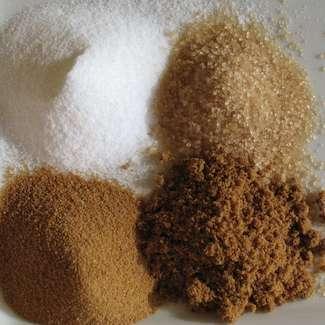Bashing sugar is all the rage in nutrition.
A Google search for "sugar causes cancer" returns 133,000,000 results, some more dubious than others. But in the last 20 years or so, many researchers and health commentators have moved beyond implicating sugar as a cause of life-threatening disease to blaming it for more mild concerns, even acne.
According to a new epidemiological study, consuming sugar and dairy may cause you to break out. Summarizing the paper, medical news site Healthline wrote:
“Researchers found that people with acne are far more likely to eat dairy products on a daily basis, according to new research presented at this year’s European Academy of Dermatology and Venereology (EADV) Congress in Madrid … [T]he researchers examined data on more than 6,700 participants across North America, South America, and Europe. nearly 50 percent of the people with acne studied consumed dairy products daily, compared to less than 40 percent of those who did not. They also found a significant association for daily consumption of sweet beverages like soda or juices and eating foods like pastries and chocolate."
Much like the idea that sugar consumption influences cancer development, this proposed link to skin health is perfectly plausible. Indeed, there is some evidence that suggests a relationship. For example, the blood sugar-lowering drug tolbutamide, primarily used to treat diabetes, also reduced acne in several studies in the 1950s and 60s. Nonetheless, the association between certain foods and acne is mired in speculation, and there are several important reasons to approach this new study with skepticism.
The survey says...
Most importantly, the study was “an international survey conducted on [the] internet in France, Germany, Italy [and] Brazil …” in which subjects reported their dietary habits and whether a physician had diagnosed their acne. This is concerning because nutrition surveys are infamously unreliable. Study subjects completing online surveys, according to a 2014 study, struggle to recall their diet, often under-reporting or altering what they actually eat. Epidemiologists have known about the limitations of food recall surveys for many years and their unreliability continues to fuel debate about abandoning them altogether.
Assuming the survey results are accurate, we still run into several other problems. First, the study reports (see the table below) “daily consumption” of various foods, but this is a rather imprecise measurement. After all, eating 20 Snickers bars or a single Hershey's Kiss every day would both count as “daily chocolate consumption.” Do both servings have the same impact on acne prevalence? We can't know until the researchers publish their full study; the data from their conference presentation don't answer that question. Furthermore, what constitutes “frequent and regular nibbling”? That category tells us very little about the relationship between diet and skin health.

Conflicting studies
After the new study was released, the popular health site MindBodyGreen reported: “Previous studies linking food to acne have shown foods with a high glycemic index can trigger breakouts; these new numbers only further underscore how deeply connected diet and skin are related.” But this isn't quite what the research actually shows. While some studies seem to support the diet-acne relationship, “other studies have not found a connection between a high-glycemic diet and acne,” the American Academy of Dermatology notes.
Additionally, not all dairy is created equal. Yogurt and cheese consumption aren't linked to acne prevalence for most people, but milk, which contains more of a sugar called lactose, seems to influence acne. Other studies, though, find no association between drinking milk and sprouting zits. And according to a 2019 meta-analysis, much of this is epidemiological research in which people self-reported their dairy intake and acne prevalence; therefore, it suffers from the same limitations as the new internet survey study.
Conclusion
So what do we need to say something more definitive? Better data. As a 2005 review article pointed out: “Confirmation of the diet-acne hypothesis will require numerous well controlled dietary interventions examining multiple nutritional factors.” But that doesn't offer us much help as we make daily decisions about what to eat, so what do we do? The American Academy of Dermatology offers some reasonable advice:
“While more research is needed to know whether certain foods can worsen acne … Dermatologists recommend that you pay attention to your breakouts, and ask yourself these questions: Does any food or beverage seem to trigger a breakout or worsen your existing acne? … [W]hat happens when you don’t have that food or beverage for a day, a week, or a month?”




